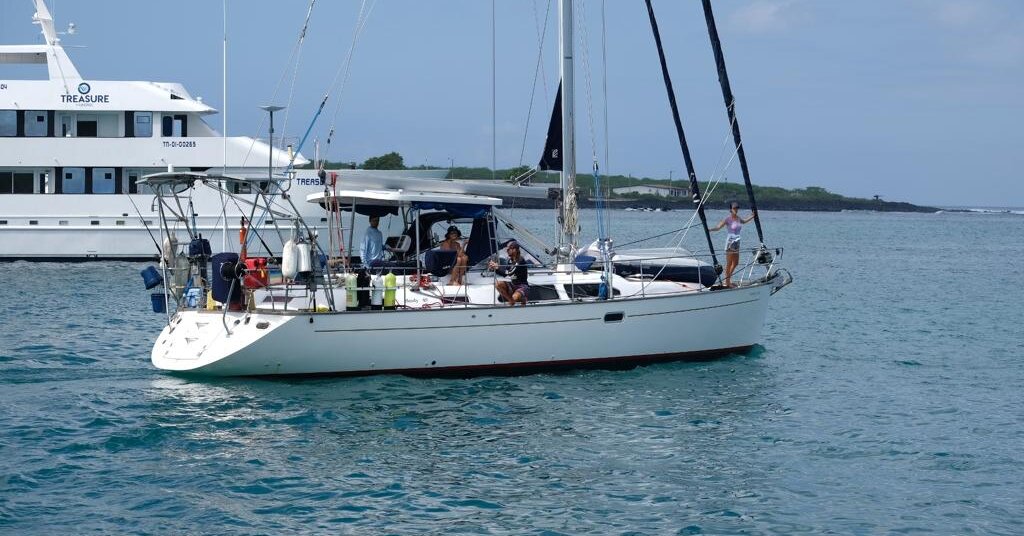When Rick Rodriguez’s sailboat collided with a whale in the middle of the Pacific Ocean earlier this month, it sank within about 15 minutes. But not before he and his three fellow mariners had escaped with essential supplies and cutting-edge communications gear.
One was a pocket-size satellite device that allowed Mr. Rodriguez to call his brother, who was thousands of miles away on land, from a life raft. That call would set in motion a successful rescue effort by other sailors in the area who had satellite internet access on their boats.
“Technology saved our lives,” Mr. Rodriguez later wrote in an account that he typed on his iPhone from the sailboat that had rescued him and his crew.
People involved in the roughly nine-hour rescue say it illustrates how newer satellite technologies, especially Starlink internet systems, operated by the rocket company SpaceX since 2019, have dramatically improved emergency communication options for sailors stranded at sea — and the people trying to find them.
“All sailors want to help out,” said Tommy Joyce, a friend of Mr. Rodriguez who helped organize the rescue effort from his own sailboat. “But this just makes it so much easier to coordinate and help boaters in distress.”
Starlink’s service gives vessels access to satellite signals that reach oceans and seas around the globe, according to the company. The fee-based connection allows sailors to reach other vessels on their own, instead of relying solely on sending distress signals to government-rescue agencies that use older, satellite-based communication technologies.
But the rapid rescue would not have been possible without the batter-powered satellite device that Mr. Mr. Rodriguez used to call his brother. Such devices have only been used by recreational sailors for about a decade, according to the United States Coast Guard. This one’s manufacturer, Iridium, said in a statement that the device is “incredibly popular with the sailing community.”
“The recent adoption of more capable satellite systems now means sailors can broadcast distress to a closed or public chat group, sometimes online, and get an instant response,” said Paul Tetlow, the managing director of the World Cruising Club, a sailing organization whose members participated in the rescue.
A sinking feeling
Whales don’t normally hit boats. In a famous exception, one rammed the whaling vessel Essex as it crisscrossed the Pacific Ocean in 1820, an accident that was among the…
Click Here to Read the Full Original Article at NYT > Travel…
